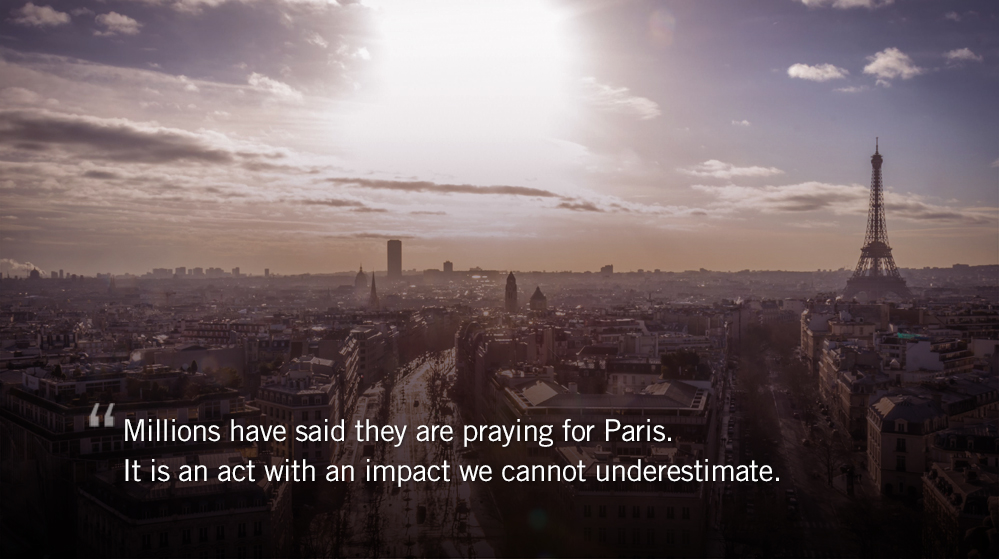We are scared and filled with hate at the same time. [It’s a] dark period, but we shall not give up. — Pascal Bruckner, from Paris
Although we now live in near-certainty of future terrorists attacks, they are becoming increasingly more difficult to detect and prevent. This weekend’s horrific attack was preceded by an ominous warning from Mark Trévidic, a former French anti-terrorism judge. “The real war that ISIS intends to wage on our soil has not yet begun,” Trévidic told Paris Match last September, “our darkest days are ahead.”
“Darkness” is a spiritual metaphor—one that has reentered language of the state and the world of literature at a remarkable clip since what is considered to be the turning point of international terrorism, 1979. As people of faith, we agree — terrorism is a vile expression of the darkness that has torn apart humanity since evil entered our world. Moreover we also see that humanity’s attempts to be its own source of light have catastrophically fallen short.
The creators of dynamite, the submarine, and the machine gun all believed their inventions would bring peace to mankind. AT&T’s chief engineer in the 1890’s prophesied that the telephone would usher in an era of, “peace on earth, good will towards men.” He was working on the precursor to the cell phone, now used to coördinate attacks and trigger bombs.
All of us throughout the whole wide earth have traded in our weapons of war. We have exchanged our swords for plowshares, our spears for farm tools. Now we cultivate the fear of God, justice, kindness to men, faith, and the expectation of the future given to us by the Father himself through the crucified one.
Millions have said they are praying for Paris — it is an act with an impact we cannot underestimate. Judge Trévidic was careful to warn not just of the oncoming attacks, but for the way we respond, “Terrorism is one-upmanship. It must always go further, hit harder.”
The solution to our suffering, of which terrorism is a fruit, is found in the one who called himself, “I am.” It is the Savior who laid down his life to bring resurrection to the dead, healing to the broken, and the return of all that has been lost.
And so we weep with the broken. We pray for those suffering. We enter into one of the most difficult Christian expressions of worship and pray for our enemies. We join the history of the church, crying, “Come, Lord Jesus” — our hearts and our world need the restoration of the great Je Suis.
Today’s Reading
1 Chronicles 7-8 (Listen – 9:04 )
Hebrews 11 (Listen – 6:22)






